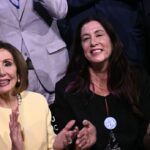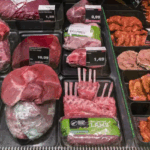
A long-simmering feud between America’s ranchers and its meatpacking giants has officially boiled over into a federal investigation, one that could reshape the economic landscape of the U.S. beef industry.
On Friday, Attorney General Pam Bondi confirmed that the Department of Justice is actively investigating allegations of collusion, price manipulation, and anti-competitive behavior among major meatpackers—following direct pressure from President Donald Trump, who accused companies of driving up beef prices at the expense of both producers and consumers.
The DOJ’s probe targets a sector long criticized for its consolidation: just four companies—Tyson Foods, Cargill, JBS USA, and National Beef Packing—control approximately 80% of the market for grain-fattened cattle.
That dominance has enabled extraordinary control over pricing, and critics argue, left ranchers squeezed while consumers shoulder skyrocketing costs. Those costs hit historic highs in 2025, fueled by years of drought, soaring feed prices, and a diminished national cattle herd now at its lowest point in nearly 75 years.
In a sharply worded post on Truth Social, Trump demanded immediate DOJ action, accusing meatpackers of using “Illicit Collusion, Price Fixing, and Price Manipulation” to fatten their bottom lines. His administration’s move is a high-profile effort to tackle the growing strain of inflation that’s been felt most acutely at the grocery store.
Trump’s comments, however, stirred controversy among ranchers after he suggested that importing more beef—especially from Argentina—might bring relief to consumers. Economists quickly countered that such imports wouldn’t meaningfully impact domestic prices, and his remarks reportedly angered cattle producers who already feel under siege.
Meanwhile, the DOJ’s antitrust division, under the leadership of Assistant Attorney General Gail Slater, a former economic adviser to Vice President JD Vance, has made it clear: this is about more than beef. Slater says the division will focus on “pocketbook issues” that hit American families hardest—food, housing, and transportation. With the power to issue subpoenas and conduct both civil and criminal investigations, the DOJ is signaling a more aggressive stance on corporate conduct in essential sectors.
Notably, Tyson, JBS, and Cargill have already shelled out tens of millions to settle prior lawsuits alleging supply restrictions and price inflation, though they deny any wrongdoing. Their silence in the face of this new probe speaks volumes. Cargill declined comment, and the others have yet to respond.
As the DOJ ramps up its investigation, the meatpacking industry may be facing a reckoning. Whether this probe leads to real reform or simply another round of settlements remains to be seen. But one thing is clear: the price of beef has now become a symbol of something much larger—the fight for economic fairness in an era of unchecked consolidation.








